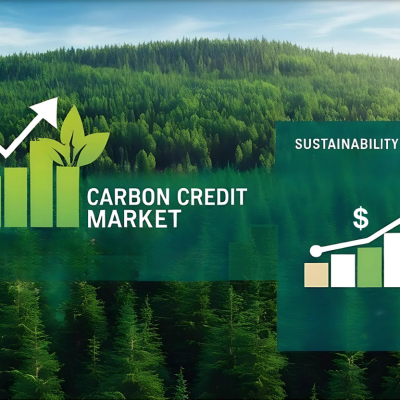The 2025 World Economic Forum (WEF) in Davos, Switzerland, focused on “Collaboration for the Intelligent Age,” emphasizing the convergence of sustainability, innovation, and partnerships. Several key themes emerged that are particularly relevant to sustainable financing and investment, highlighting the crucial role of businesses and financial institutions in achieving global sustainability goals.
Sustainability as a Core Business Strategy
A primary takeaway from WEF 2025 is that sustainability is no longer optional but is a critical driver of business resilience, competitiveness, and long-term success. Integrating sustainable practices into core operations is essential for companies seeking to thrive in the modern landscape. This involves adopting the UN Global Compact’s Ten Principles, which address human rights, labor, the environment, and anti-corruption. Businesses that embrace sustainability not only strengthen their ethical and governance foundations but also position themselves to capitalize on new market opportunities in the digital economy. There is a need to empower businesses to help shape resilient economies while reinforcing trust among stakeholders.
The Role of Emerging Technologies
The rapid advancement of technologies like AI, quantum computing, and green tech was a central theme at the forum, presenting both challenges and opportunities for sustainable development. It is crucial for companies to adopt ethical AI frameworks to ensure that innovations accelerate progress toward the Sustainable Development Goals (SDGs) rather than exacerbating inequalities. The integration of ethical technology is key to addressing climate, equity, and operational challenges. The UN Global Compact emphasizes the need for responsible AI practices, including robust governance structures, bias-mitigation strategies, and stakeholder engagement. Leaders at Davos stressed the importance of balancing innovation with responsibility, using technology to improve supply chains, reduce emissions, and enhance transparency.
Partnerships as Catalysts
The WEF 2025 highlighted that achieving global goals requires collaboration across sectors, as no single entity can tackle these challenges alone. Multi-sectoral partnerships are essential for addressing global issues and unlocking market opportunities, estimated at $12 trillion by 2030. The UN Global Compact continues to serve as a convening force, bringing together leaders from business, government, and civil society to drive progress on climate resilience, living wages, and biodiversity protection. Collective action is necessary to address major issues such as the climate crisis and rebuilding trust, underscoring the importance of shared solutions.
Urgency of Climate Action
The climate crisis was a major concern at WEF 2025, with discussions focusing on accelerating climate action through partnerships, technology, and financing. The aim is to achieve net-zero emissions and build nature-positive economies through industry-wide decarbonization pathways. The forum emphasized utilizing technologies and nature-based solutions to bridge the gap between available climate technologies and scaling to meet global needs for affordable, secure, and sustainable energy. The UN Global Compact promotes initiatives like Forward Faster, helping companies minimize their environmental footprint while seizing new market opportunities in the green economy.
Rebuilding Trust and Investing in People
Rebuilding trust through inclusive dialogue and public-private partnerships was a key theme at WEF 2025. In order to foster peace and security, economy-wide climate action and responsible use of technology and AI are required. Bringing together diverse stakeholders is important for addressing societal and geopolitical challenges effectively by fostering multilateral dialogue, promoting inclusive collaboration and upholding universally recognized principles. The need to put people first is important to bridge societal divides.
Divergent Economic Outlooks
While there was an overall sense of “nervous optimism” at Davos, attendees held divergent views. US investors and business leaders displayed confidence, while Europeans expressed concerns about their economies, red tape, and lack of innovation. Gulf States actively promoted both traditional and transitional energy along with artificial intelligence. Emerging economies were keen to take advantage of US optimism while emphasizing their ability to manage both eastward and westward. There was widespread concern about the continued weakness of large European economies, which are losing ground to the US in productivity and technological innovation, and to China in manufacturing competitiveness. Many believe that Europe needs to address sclerotic regulation.
Tariffs and Inflation
The concept of “modern mercantilism,” with an emphasis on national security, self-reliance, and the strategic importance of certain sectors, was a major topic of discussion. Tariffs were a significant focus at Davos, with concerns about their potential to reverse gains in taming inflation. The trend towards more tariffs and migration management in many western countries is causing investors to find it difficult to position portfolios.
AI Development and Geopolitics
AI was a prominent topic, with conversations rooted in real experience and understanding. Companies face the challenge of bringing their workforces along as technology develops more quickly than humans can acquire new skills. Corporates expressed fears that nationalistic structures and restrictions on chips, data, cloud, and AI models could severely hamper global progress in the coming decades. AI development is closely linked to geopolitics and national energy policies, as compute is energy. Despite optimism, there was a sense that we remain in a period of foundation setting and experimentation, and the social ramifications of AI may take two generations to fully grasp.
Finance and Energy Transition
The finance system is reassessing its role in the energy transition. There is a dose of realism that financial players can influence their clients but cannot drive the transition faster than either government policy or public opinion allows. US banks are back, emboldened by a strong 2024 and the possibility of a roll back of the Basel III endgame rules. The dramatic shift in the credit landscape continues with private credit players seeking new asset classes to compete for.
Health and Demographic Shifts
The health implications of climate change were a significant focus, with public-private collaboration seen as crucial. There was discussion on reducing the 2 billion disability-adjusted life years impacted by climate change. Addressing demographic challenges, including inverting age structures and shrinking workforces, was also a key topic. The immediate pressure for corporate leaders comes from five generations coexisting at work with different digital fluency, expectations, and skills.
Trust and Resilience
A vital theme from previous years was trust in institutions and the corporate world. The low levels of trust in leaders highlights the need for introspection on how to renew the social contract. The confluence of political, corporate, charitable, and philanthropic mindsets offers a chance to address these trends, but will require ambition and resilience.
In conclusion, the 2025 World Economic Forum emphasized the interconnectedness of sustainability, innovation, and collaboration in addressing global challenges. For the sustainable financing and investment sector, this means a shift towards integrating sustainability into core business strategies, embracing ethical technological advancements, and fostering partnerships to drive meaningful change. There is a need for a collaborative approach between businesses, governments, and civil society, for achieving global sustainability goals.
References:
https://www.weforum.org/videos/davos-2025-highlights/
https://unglobalcompact.org/journal/five-takeaways-2025-world-economic-forum














